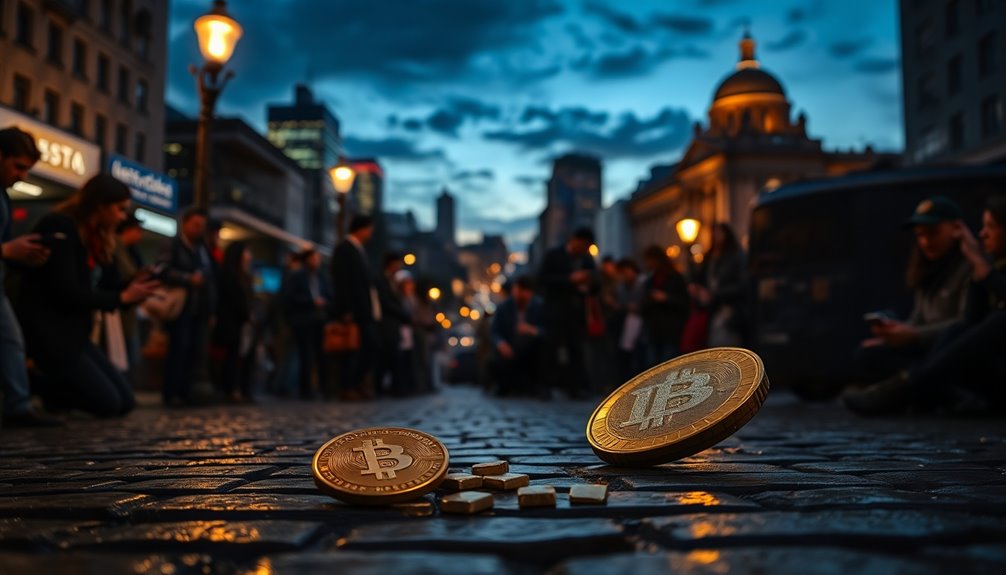You might have heard about the LIBRA token's staggering 85% drop, especially after being backed by Argentine President Javier Milei. This decline coincided with a controversial $87 million withdrawal from its reserves, raising eyebrows about possible team manipulation. With 82% of the token's supply held by just a few addresses, the implications of this high centralization are significant. What does this mean for the future of the token and its investors?

The LIBRA token, once a promising contender in the cryptocurrency market, has taken a nosedive, crashing 85% from its peak. Initially, it reached an impressive market cap of $4.5 billion and briefly exceeded a price of $7.8. However, it now struggles to maintain relevance, trading at around $3.51 after a devastating liquidity removal that saw $87 million worth of USDC and SOL vanish from its reserves. This drastic price drop raises serious concerns for investors and the crypto community.
Centralization is one of the biggest red flags surrounding LIBRA. A staggering 82% of its supply is concentrated in a handful of addresses, controlled by a few private keys. This concentration fosters a lack of transparency and sparks fears of potential manipulation. Many experts, including Coinbase's Conor Grogan, have voiced suspicions that LIBRA might be part of a pump-and-dump scheme, where prices are artificially inflated before a sudden crash, leaving unsuspecting investors in the dust. Without a clear tokenomics model, it's tough to gauge the project's legitimacy.
The project's initial endorsement by Argentine President Javier Milei offered a glimmer of hope. His support was aimed at bolstering Argentina's economy through funding local businesses. However, this support didn't last long. Milei later withdrew his endorsement, citing a lack of due diligence on the project. This withdrawal raises questions about whether his account was compromised or if he realized the project's underlying issues too late. Additionally, the centralization concerns surrounding LIBRA further complicate the investment landscape, as the concentration of supply could lead to significant price manipulation.
With the market performance deteriorating, the project's credibility has taken a hit. LIBRA bears similarities to other meme coins, like the TRUMP token, which often lack solid foundations and clear governance structures. This trend of associating with high-profile figures without substantial backing only adds to the skepticism surrounding LIBRA.
If you're considering investing in LIBRA or similar tokens, it's crucial to approach with caution. Research is vital, as the crypto landscape is fraught with risks and uncertainties. The LIBRA saga serves as a stark reminder that even with initial promise and high-profile endorsements, the underlying mechanics and governance of a cryptocurrency can spell disaster.
Always stay informed and make prudent decisions to safeguard your investments in this volatile market.










